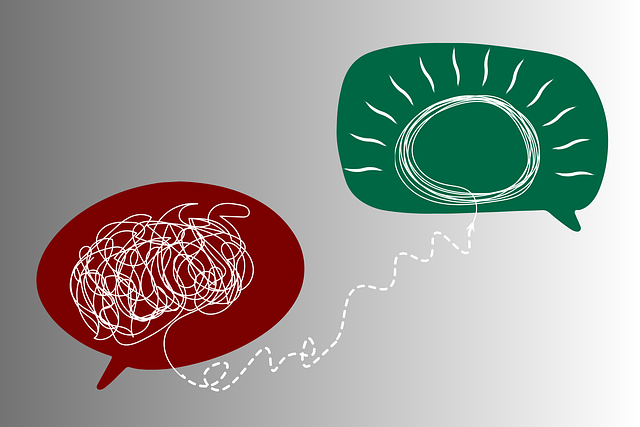Englewood Polyamorous and Open Relationships Therapy provides specialized stress management workshops designed for polyamorous and open partnerships. These interactive sessions equip participants with self-awareness exercises, effective coping strategies, and social skills training to enhance communication, navigate challenges, and deepen connections. The workshops incorporate cultural sensitivity, promote boundary setting, and offer trauma support services, contributing to improved mental wellness, relationship dynamics, and Depression Prevention.
“In today’s fast-paced world, stress has become an all-encompassing challenge, particularly within open relationships. The Englewood Polyamorous community has recognized this need for Open Relationships Therapy, leading to the organization of stress management workshops. This article explores the growing importance of such initiatives, delving into the impact of chronic stress on personal connections and offering insights into how structured workshops can be designed to enhance resilience and well-being. We’ll discuss successful implementation strategies and provide a roadmap for evaluating their effectiveness.”
- Understanding Stress and Its Impact on Relationships
- The Role of Workshops in Stress Management
- Designing Effective Stress Management Workshops for Open Relationships
- Implementing and Evaluating the Success of Englewood Polyamorous Workshops
Understanding Stress and Its Impact on Relationships

Stress is a universal experience that can have profound effects on our lives, particularly within intimate relationships. When left unaddressed, chronic stress can lead to communication breakdowns, emotional distance, and even conflict. In polyamorous and open relationships, where openness and honesty are paramount, understanding and managing stress becomes an essential aspect of maintaining healthy connections with partners.
Englewood Polyamorous and Open Relationships Therapy offers workshops designed to help individuals develop self-awareness exercises that identify personal stress triggers. By learning effective coping strategies, participants gain the tools needed to navigate the challenges of modern life while fostering stronger social skills training within their relationships. These practices promote mental wellness, allowing individuals to create healthier boundaries, improve communication, and deepen connections with their partners.
The Role of Workshops in Stress Management

Stress management workshops play a pivotal role in empowering individuals to take control of their mental well-being. These interactive sessions offer a safe space for participants to learn and practice various coping skills development techniques tailored to their unique needs. Through engaging activities and discussions, attendees can enhance their problem-solving abilities, improve communication strategies, and gain insights into managing stress effectively.
At Englewood Polyamorous and Open Relationships Therapy, we recognize that stress can stem from complex personal dynamics and life experiences. Our workshops are designed to provide trauma support services, addressing underlying issues while teaching practical tools for daily resilience. By participating in these sessions, individuals not only develop healthier coping mechanisms but also foster better relationships, leading to improved overall well-being.
Designing Effective Stress Management Workshops for Open Relationships

Stress management workshops tailored for open relationships, like those offered by Englewood Polyamorous and Open Relationships Therapy, play a pivotal role in fostering emotional healing processes within diverse partnership dynamics. These specialized programs must consider the unique challenges and strengths inherent in polyamory and open relationships. Incorporating practices that promote open communication, trust-building exercises, and conflict resolution strategies is essential for creating a safe space where participants can explore and manage stress collectively.
The design of effective mental health education programs should reflect cultural sensitivity in mental healthcare practice. By recognizing and addressing the influence of cultural backgrounds on stress experiences and coping mechanisms, these workshops can better serve the diverse needs of their participants. This approach not only enhances the overall effectiveness of the program but also ensures that everyone feels respected, understood, and supported in their journey towards stress management and improved relationship dynamics.
Implementing and Evaluating the Success of Englewood Polyamorous Workshops

Englewood Polyamorous workshops have emerged as a unique and innovative approach to stress management and relationship therapy. These open-ended sessions cater to individuals seeking alternative ways to navigate their emotional well-being and interpersonal dynamics. By providing a safe and supportive environment, the workshops encourage participants to explore polyamorous concepts, fostering both self-awareness and understanding of non-monogamous relationships.
The success of such initiatives can be evaluated through participant feedback and measurable outcomes. The Stress Management Workshops Organization (SMWO) tracks key metrics like reduced stress levels, improved resilience, and enhanced communication skills among attendees. Additionally, the effectiveness of these workshops extends beyond individual benefits, as they contribute to a broader goal of Depression Prevention by offering healthy coping mechanisms and promoting open dialogue about relationships.
Stress management workshops, particularly tailored for the unique dynamics of Englewood Polyamorous and Open Relationships Therapy, prove invaluable in fostering healthy communication and emotional well-being. By understanding stress triggers and their impact on relationships, participants can gain practical tools to navigate challenges effectively. The success of these workshops highlights the power of creating safe spaces for vulnerable conversations and shared strategies, ultimately enhancing the resilience and intimacy within polyamorous communities.









